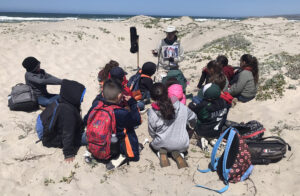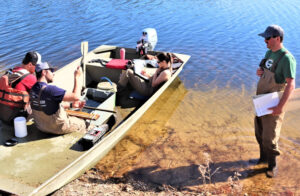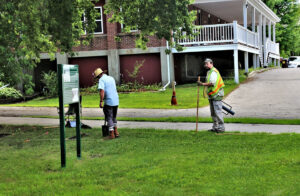CEMML has supported military readiness and resource conservation for more than three decades. Our experience and the resources of CSU allow us to tailor and apply innovative, practical methods to meet the needs of diverse managers of public lands.
CEMML works closely with the Department of Defense, US Army Corps of Engineers, National Park Service, and other departments and agencies through cooperative agreements, grants, and contracts. Our resource management and planning, research, education, and outreach efforts inform military and other federal managers as they meet their dual mandates of using and conserving public-trust resources.
On-Site Staffing
A high proportion of CEMML’s researchers and technicians work full-time at federal and military installations. The strategic placement of staff at these installations facilitates consistent service and problem-solving.
Research
CEMML also employs a diverse range of professionals directly at the CSU campus. CEMML is part of a land grant university that has one of the most comprehensive natural and cultural resource colleges in the nation.
Latest CEMML Stories

Sharing the beach: CEMML supports snowy plovers and communities in California
In 2020, Vandenberg Space Force Station and CEMML began providing educational programs at local elementary schools to spread awareness about the snowy plover, a rare migratory shorebird currently listed as threatened under the federal Endangered Species Act. Over 600 students have participated in the program since the program began.

CEMML conducts surveys to aid fisheries management at Fort McCoy
Every year, watershed management biologists and specialists with CEMML, in partnership with Fort McCoy’s Directorate of Public Works Environmental Division Natural Resources Branch (NRB), hold fish surveys at Fort McCoy’s 10 lakes and ponds. Surveys are conducted using various methods to understand fish populations and the overall health of the waterways.

CEMML archaeological survey explores early 20th century history of Fort McCoy
An archaeological survey conducted by CEMML personnel in the summer of 2022 was initially meant to investigate the creation of several hundred concrete tent pads at Fort McCoy, Wisconsin. Research into the tent pads, dating from around the early 20th century, also unearthed additional information about other possible known archaeological features and sites around what is referred to as “Old Camp McCoy.”
Share this page on social media